The DualSense PS5 controller is the gamepad we'll be using with the PlayStation 5 , when the next-gen console lands in late 2020.
Revealed by Sony earlier this year, the PS5 controller looks radically different from the company's previous gamepad designs, instead sporting a new futuristic look, a white and black color scheme, and a boomerang-like shape that has divided the opinion of fans.
But regardless of whether you love or hate the way it looks, the DualSense controller has some fantastic-sounding immersion-increasing features that we can't wait to get our hands on, such as adaptive shoulder button triggers with haptic feedback, a built-in microphone, and a new 'Create' button that replaces the PS4 Share button.
Interested to find out more? Here's everything we know so far about the DualSense PS5 controller.
DualSense PS5 controller: key facts
- What is the DualSense? Sony's next-generation PlayStation 5 controller
- When's the DualSense release date? "Holiday 2020" (to coincide with the release of the PS5)
- What will be the controller's price? TBC, but likely around £60/$70/AU$120
- Can you still use a PS4 controller on the PS5? According to PlayStation, yes but only with PS4 games, not the new PS5 exclusive games.
- Does the DualSense PS5 controller come in black? Sony hasn't confirmed if the PS5 controller will come in other colors - but we're expecting it might after launch
DualSense PS5 controller release date
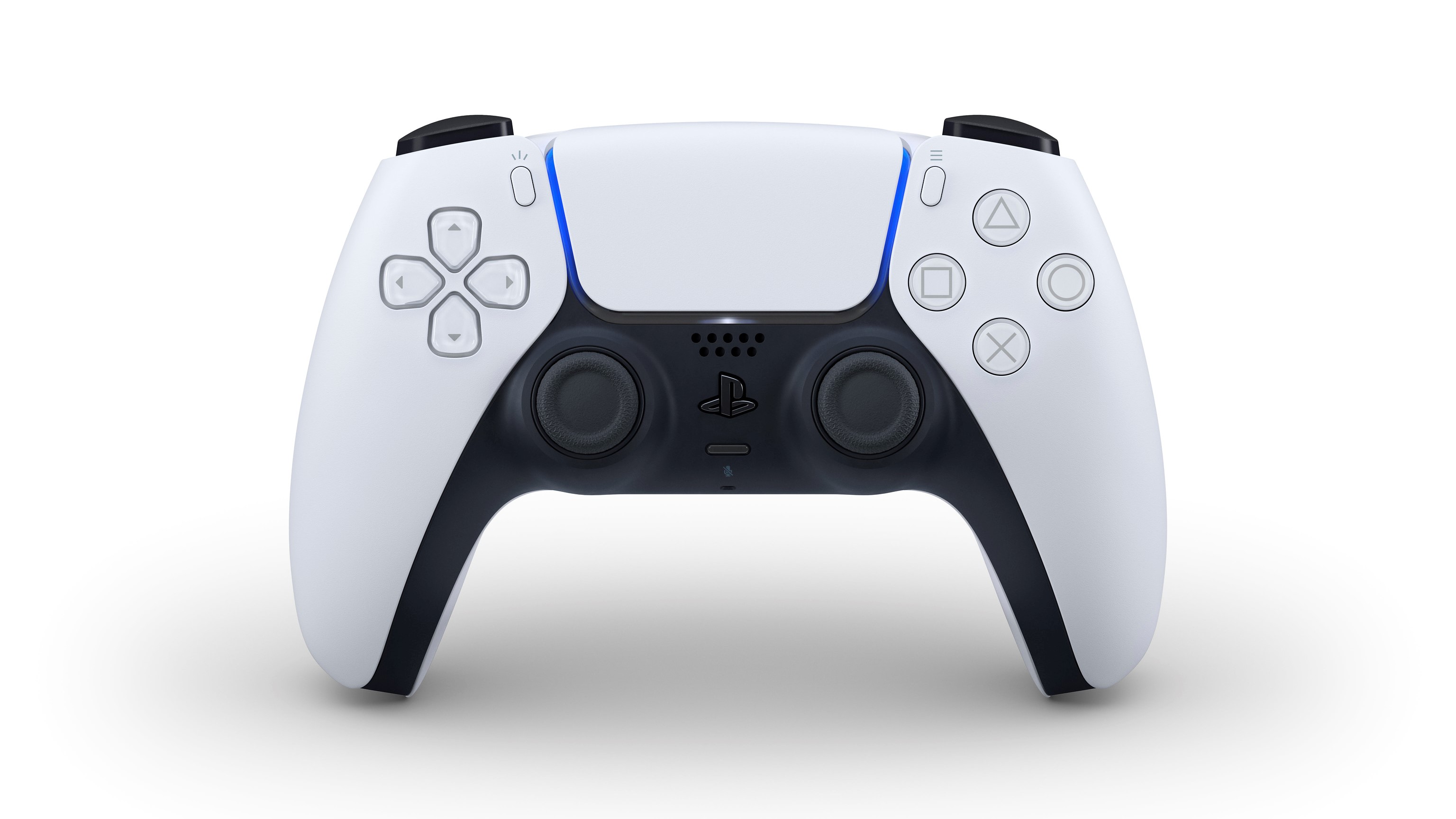
Sony finally revealed the DualSense PS5 controller to the world in a PlayStation Blog post on April 7, 2020 - giving us our first glimpse of the next-gen gamepad.
The Dualsense controller will release alongside the PlayStation 5 during the "Holiday" 2020 period – so sometime between October and December.
We're expecting that the DualSense PS5 controller, like the DualShock 4 before it, will work not only on the PlayStation 5 but also with PC.
- How use the DualShock 4 controller on a PC
- The biggest PS5 design clues we've spotted in the DualSense controller
DualSense PS5 controller price
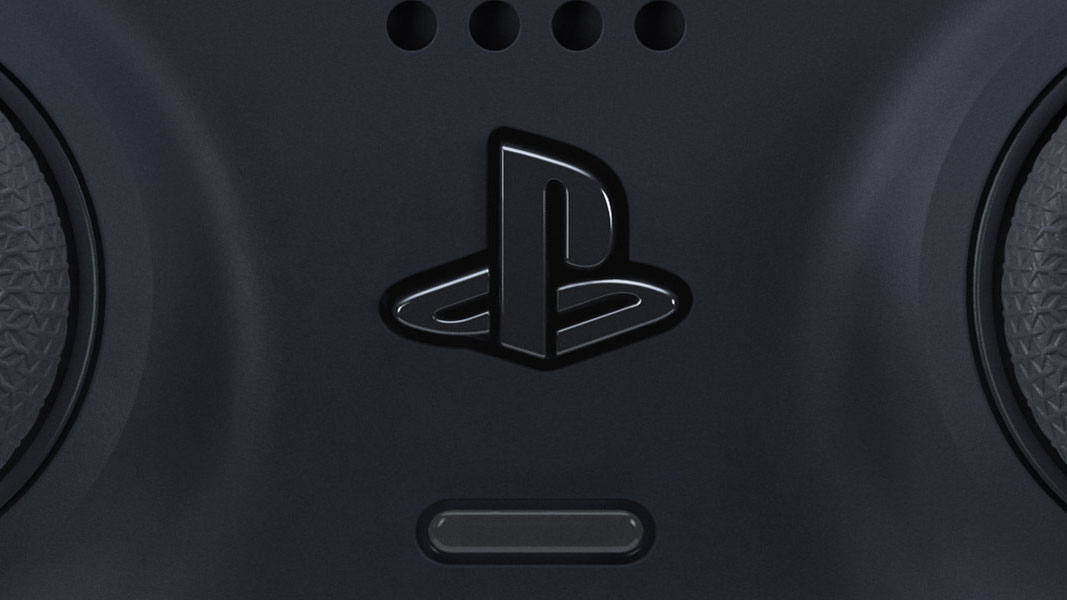
A price for the DualSense PS5 controller has not been confirmed yet, but with the PS4 controller retailing for around £40/$50/AU$80, we expect the DualSense to be just a bit more expensive – we'd predict around £60/$70/AU$120.
This is pure speculation at this point, based solely on the confirmed features and Sony's previous price strategy for controllers. It's likely Sony will confirm the PS5 controller price in the coming months ahead of launch.
- Best PS4 controllers 2020: the top options for smarter gaming
- Check out our DualShock 4 controller review
- Here's what we know and predict about the PS5 price
DualSense PS5 controller features
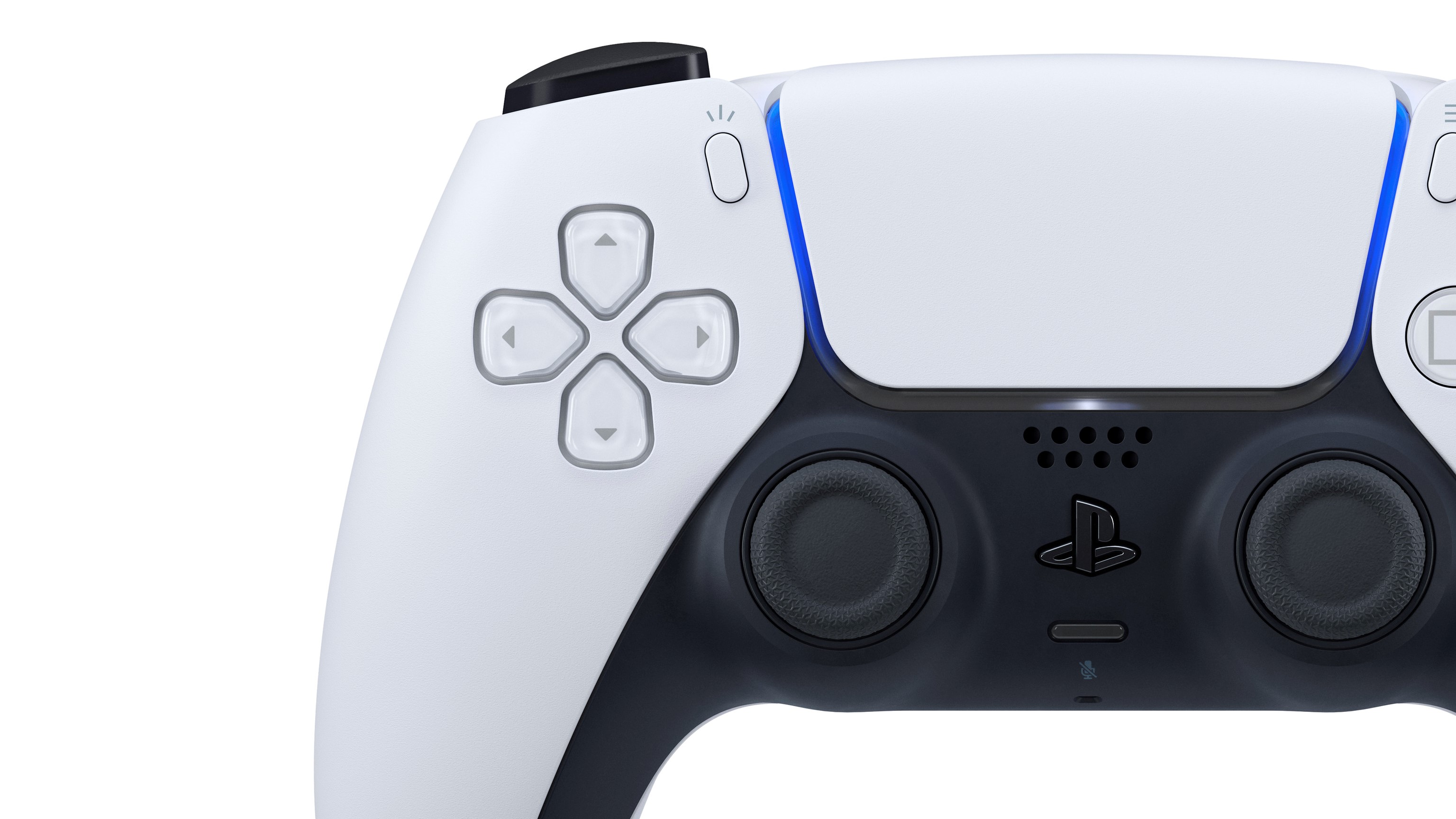
The formal reveal of the DualSense controller confirmed what we've heard about the PS5 controller features for a while and it's increasingly clear that the controller has been designed with the aim of improving player immersion. In the PS5's first TV advert there's a real focus on immersive gameplay, showcasing some of the benefits the DualSense's features will have for players.
Here are all the features we know about so far:
Haptic feedback
Haptic feedback will replace the DualShock 4's rumble technology. While the rumble technology seen in the PS4 controller vibrates intensely during particular in-game events, it wasn't particularly fine-tuned to the player's experience.
Haptic feedback simulates touch, meaning the controller will output vibrations or movements to replicate a real-life touch experience. This aims to improve the controller's feedback and therefore player's immersion.
In an interview with Business Insider Japan (translated by Gematsu), SIE CEO Jim Ryan said:
“3D audio and the haptic feedback support of the controller are also things that, when you try them, you will be surprised at how big a change they are. Even just playing the racing game Gran Turismo Sport with a PlayStation 5 controller is a completely different experience."
Developers have been speaking out more recently about the ways in which haptic feedback is making a difference in their games. Most recently, in an official PlayStation blog post, some first-party studios were detailing how players can expect it to make a difference to gameplay.
According to Brian Horton, the Creative Director of Marvel’s Spider-Man: Miles Morales "The haptic feedback precision allows us to do all sorts of new things." In Miles Morales in particular, "we’ll be hinting to players which direction attacks are coming from by providing haptic feedback from the appropriate direction on the DualSense wireless controller. What does it feel like to use Miles’s stealth ability? How does a Venom Blast feel? Because of the high resolution of DualSense wireless controller’s haptics system, we can really push the dimensionality of the feedback. For instance, as you hold down Square to do a Venom Punch, you feel Spider-Man’s bio-electricity crackle across from the left side of the controller, culminating in the right side on impact.”
Haptic feedback won't just be something that first-party developers can easily make use of either. In Sony’s company-wide Technology 2020 report, one of Sony Interactive Entertainment’s research and development engineers, Yukari Konishi, has acknowledged that haptic feedback requires a certain level of technical expertise and time to implement.
However, to help third-party developers make as good use of this features as first-party developers, Konishi has developed a solution, writing that “to reduce this burden, we have created a haptic vibration waveform design environment that anyone can use easily. In this way, we have not only developed a tool that allows game creators to design an impactful, natural and comfortable vibration waveform in fewer steps, but also created a method of almost automatically generating vibration patterns from a game’s sound effects.”
This means that it’ll be able to essentially “automate the generation of high-quality vibration waveforms to a certain extent, making it look as if they were created manually by the creators”.
Adaptive triggers
The PS5 controller will also feature adaptive triggers which Sony says have "been incorporated into the trigger buttons (L2/R2)". These adaptive triggers will allow developers to program the resistance of the triggers to simulate actions more accurately.
We've heard quite a lot from developers on how haptic feedback is being used but in a recent PlayStation blog post we also got a little insight into how the controller's adaptive triggers will be used.
According to Dinga Bakaba, the Game Director for first-person shooter Deathloop, adaptive triggers will "bring some physicality in game experiences, and give important feedback." In Deathloop in particular, the developer is doing "a lot of things to make weapons feel differently from one another." One especially neat feature is that the adaptive triggers will be blocked when a player's weapon jams "to give to the player an immediate feedback even before the animation plays out, which prompts the player in a physical way that they have to unjam their gun."
Kazunori Yamauchi, President at Polyphony Digital, has also noted that in Gran Turismo 7 the adaptive triggers have been very effective "for representing the operation of the antilock brake system (ABS) while braking. A typical ABS releases brake pressure intermittently while the driver applies pressure to the pedal. The adaptive trigger is suited for recreating this pedal feel, and it will allow the player to accurately feel and understand the relationship between the braking force they want and the tire’s grip."
Marcus Smith, Creative Director at Insomniac Games, has said that the adaptive triggers will be used in Ratchet & Clank: Rift Apart, too. Using the example of the double-barrelled shotgun, the Enforcer, Smith says that "As you pull the trigger, you’ll fire from one barrel, and you can feel resistance around halfway down the trigger" and if you're looking for a bigger blast you can "pull the trigger through that resistance point and you’ll fire both barrels at the same time."
New 'Create' button
There's no Share button on the DualSense controller, but there is a Create Button, and it'll perform the same function and more. "We’re once again pioneering new ways for players to create epic gameplay content to share with the world, or just to enjoy for themselves," is how Sony describes it. Expect more on this as we get closer to launch.
Audio jack
The PS5 controller will still feature an audio jack, too, so you can plug in your own headphones and headsets. This was tweeted in response to a user question by PlayStation project manager Toshimasa Aoki (their account isn't verified, though, it's worth noting):
Still have an audio jack so you can plug in your own headsets like DS4April 8, 2020
Built-in microphone
The DualSense controller will also include a built-in microphone, and Sony says you'll be able to use this to talk with your friends online without the use of a gamepad. Of course, for folks who still want one, Sony says it will still support them.
It's likely due to new features like those detailed above that the DualShock 4 will be compatible with the PS5 only through backwards compatibility and will not be compatible with new PS5 games, with Sony saying it wants PS5 games to be able to take advantage of the "new capabilities and features" of the DualSense controller.
DualSense PS5 controller design
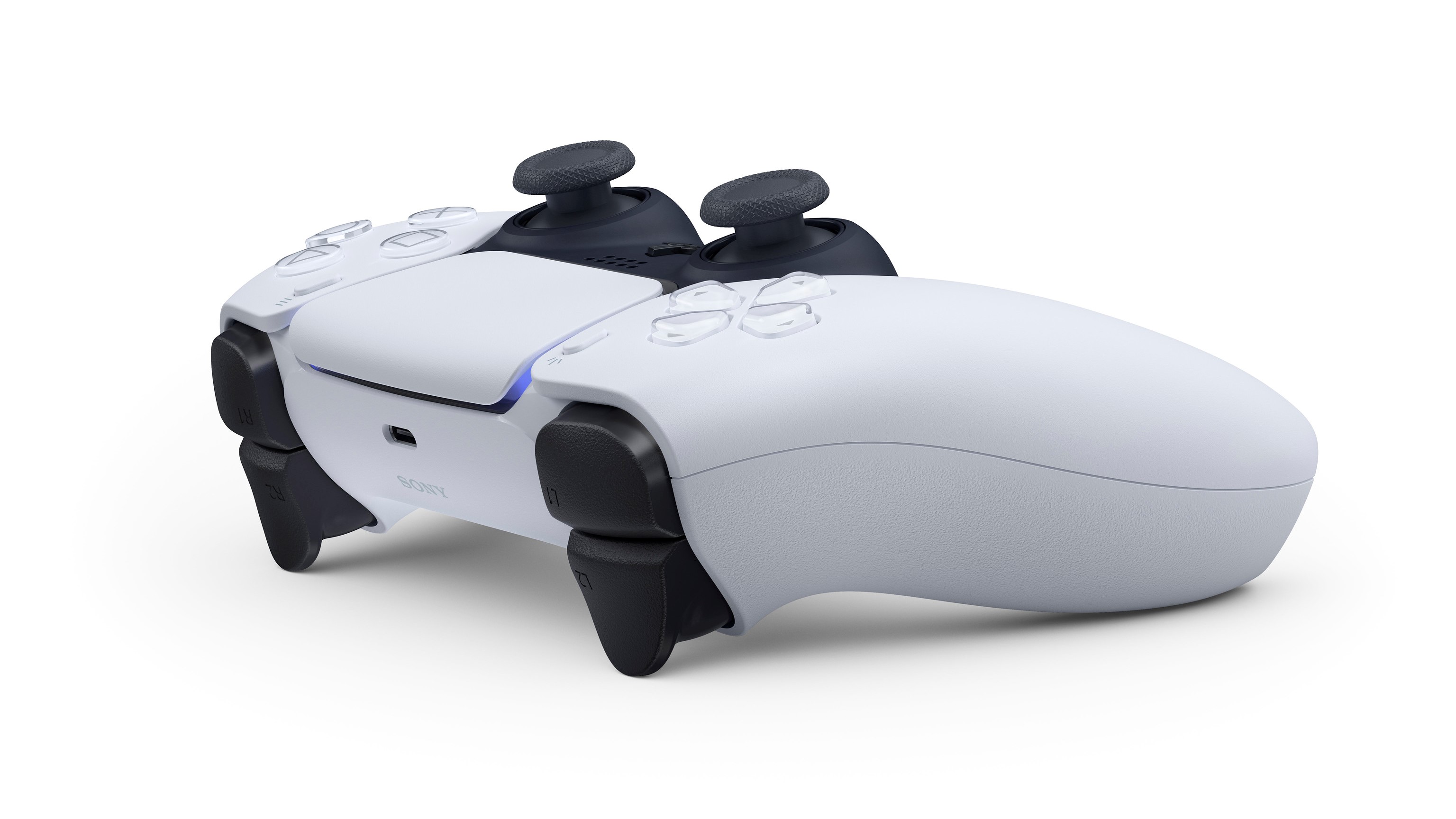
The Dualsense PS5 controller's design is a huge departure from previous PlayStation controllers. The gamepad sports a futuristic, minimalist design, with a shape that's more similar to the Nintendo Switch Pro controller.
The PS5 controller design reveal included some of what the leaks predicted: adaptive shoulder button triggers with haptic feedback, a built-in microphone so you can talk to friends without having to wear a headset, and a new 'Create' button that replaces the PS4 Share button.
Now that more images of the controller have been released, however, those rumors of exciting features on its back have been put to bed. The DualSense has no back buttons, paddles or triggers.
Instead, all that’s visible is a trademarked Sony logo, a pin-sized hole to reset the controller, and another small hole which has no known use. For now.
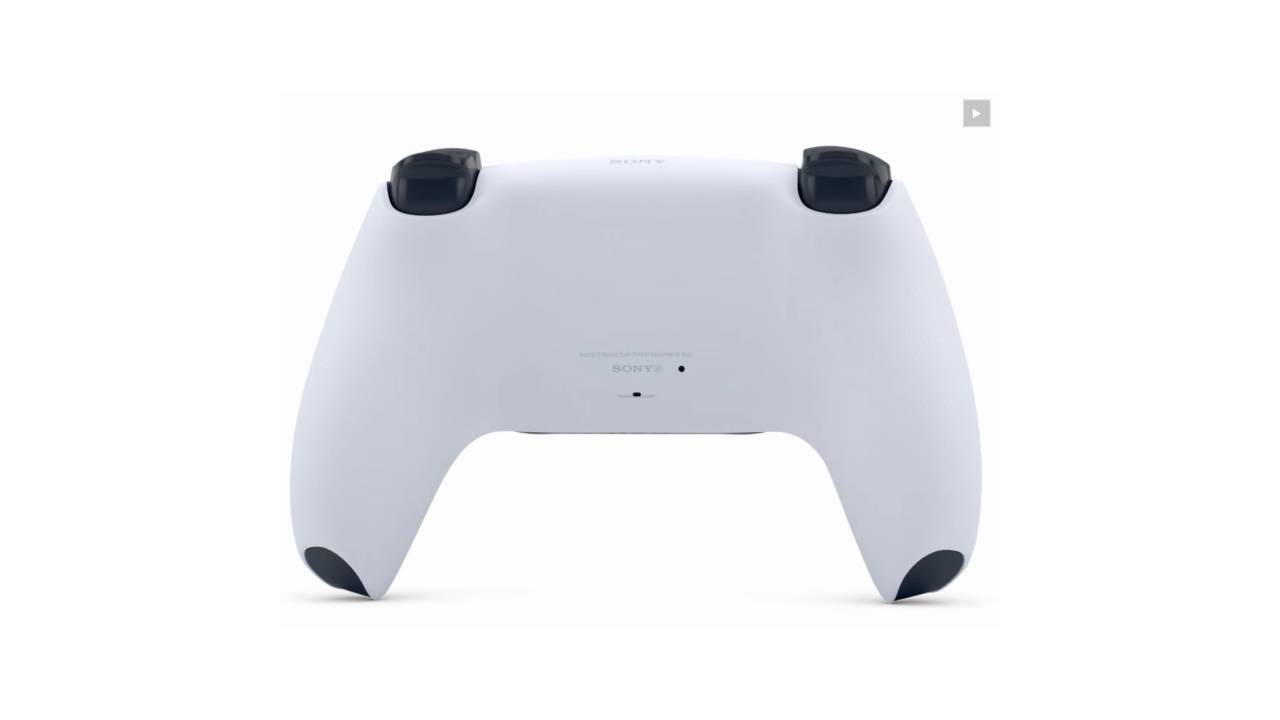
Sony has said that the team made sure "to maintain a strong battery life for DualSense’s rechargeable battery, and to lessen the weight of the controller as much as possible as new features were added."
In hands-on with the DualSense that was fairly light when it comes to new information, Geoff Keighley did say that the DualSense has "more heft" to it, but ultimately feels more sturdy than its predecessors.
In addition, Sony has moved DualShock 4's LED Lightbar from the top of the controller to the surrounding of the touchpad on the PS5. It's supposed to give the LED strip a larger look and feel, according to the company.
What's interesting (and divisive) is the DualSense two-tone color scheme that's black-and-white and devoid of color on the face buttons. Triangle, Circle, Square and Cross (or X) are still here, but they don't sport their usual hues.
Sony says that this is a "radical departure from our previous controller offerings and captures just how strongly we feel about making a generational leap with PS5." The black-and-white design is likely to extend to the PS5 console, which is different than the usual black color Sony has chosen for its console launches since the PS2.
But expect Sony to produce all kinds of colors in the years after release, as we've seen with every PlayStation controller going back to the PSone.
Including limited edition controllers, there are more than 30 different PS4 controller colors. There's no reason to expect anything different with the PS5 controller color options but they'll likely come a while after launch, with PlayStation Worldwide Marketing boss, Eric Lempel, telling Geoff Keighley (via GamesRadar) that they will "talk about that at some point" as it's "a hard enough job" to get the unit already revealed out.
- Xbox Series X controller: release date, news and confirmed features
- Wow that PS5 Controller is ugly, isn't it?
- Here's what we think the DualSense controller tells us about the PS5 design
PS5 controller specs
As mentioned above, the DualSense PS5 controller's look has been revealed, and we've learned that the controller will incorporate haptic feedback, while the L2 and R2 buttons have adaptive triggers. Full specs for the DualSense are yet to be revealed, though, including the battery life of the controller.
We'll update this section when we know the full list of PS5 controller specs.
- PS5 specs: why Sony faces an uphill battle
- PS5 DualSense controller vs Xbox Series X controller: which gamepad will be best?
PS5 controller rumors

Now that the PS5 controller has been revealed, we've updated our list of rumors below to strip out those that are no longer relevant. Given that we don't know the exact specs of the DualSense PS5 controller, though, or its full range of functionality, we've kept some of the related stories we've heard about the last few months. If they turn out to be true, or not, we'll adjust this section accordingly.
User identification
A recently approved DualSense patent (via VGC) suggests that the controller could perhaps one day have the ability to identify users by the way they're holding it and remove the need for users to manually log in to their profiles.
The patent describes using existing DualSense sensors to gather data on usage characteristics of users such as the the height and orientation at which they hold the controller to identify them. The patent suggests the process could take around 60 seconds and, if the controller then found a match, it would allow the user to either accept or reject the profile that's been identified as them.
Better battery life?
A recent leak suggests that the DualSense will have a longer battery than the DualShock 4—perhaps even 3 to 4 hours longer. Reddit user viper_on_fire claims to have had a hands-on with Sony’s new controller and key information has been reshared on the PS5 subreddit.
In the leak, it's reported that the controller’s directional pad and face buttons feel the same as the DualShock, but the L1 and R1 buttons feel more like triggers. The touchpad is also more clicky, according to the leaker, and the L2 and R2 triggers have more resistance than before.
The leaker's claims are strengthened by the inclusion of a short video that shows a brief glimpse of the peripheral but we won't know about the controller's battery life for sure until we get our hands on it ourselves or Sony confirms some official figures. The leaker didn't get to use the controller's haptic feedback or its microphone and these things could have an impact on its battery life.
Wireless charging?
A patent suggests that wireless charging could be in the works for the DualSense, although no such thing was mentioned during the announcement.
Found by Saqib Mansoor of SegmentNext, the patent shows a “wireless charging adapter with game control keys for computer game controller,” and seems to show a “wireless charging adapter that can snap onto a computer game controller and can be inductively coupled to a charging base to wirelessly recharge a battery in the controller.”
The images that appear alongside the patent show what appears to be a DualShock controller with an attachment on its back that keeps the controller charged along with a charging mat, no annoying cables involved.
Patents, however, as we all know, are no guarantee. Just because a patent has been published doesn't mean that Sony has any intention of pursuing the technology so this should be taken with a pinch of salt.
It is interesting, however, that this technology appears to be an optional extra rather than included as standard—it suggests that if Sony did opt for wireless charging capabilities it could make them available separately and maybe even later than the console's launch.
Keeping this capability separate would also likely keep the price of the base controller lower for those not all that interested in wireless charging. There's precedent for controller accessories, too, given the DualShock 4's recent back button attachment.
Heart rate and sweat sensors
The PS5 controller could also tailor your gameplay based on your vital signs (again, though, nothing was mentioned about this in the official DualSense reveal).
That's according to a Sony patent (via Respawn First) which outlines a gamepad able to use biometric feedback to monitor players' heart rate and sweat levels, and then adjust gameplay based on its findings.
The patent's abstract describes a "biofeedback sensor attachment for a controller", that is made up of "one or more sensors" which gather types of biofeedback from players, such as heart rate and sweat secretion levels, with certain measurements potentially indicative of a player's emotional state.
The information gathered would then aim to feedback the player's likely emotional state to the controller, and influence gameplay accordingly – although exactly how this would work hasn't been detailed. In the coming months, we should find out if this is true or not.
Voice control
An unearthed Sony patent (published by WIPO and spotted by SegmentNext) describes "a controller device that is held by a user's hand, including a microphone, a tactile presentation device that presents a tactile sense to the user's hand, and a speaker.
"While the user is inputting voice from the microphone, the sound of the speaker is suppressed, and tactile presentation control by the tactile presentation device is performed."
The DualSense has a built-in microphone, Sony confirmed at announcement, but voice control wasn't touched on specifically.
- Best DualShock 4 deals: cheap PS4 controller prices
- PS5 games: all the games rumored and confirmed for the PlayStation 5
- PS5 vs Xbox Series X: what we know so far
from TechRadar - All the latest technology news https://ift.tt/3a6v3SI





0 Comments